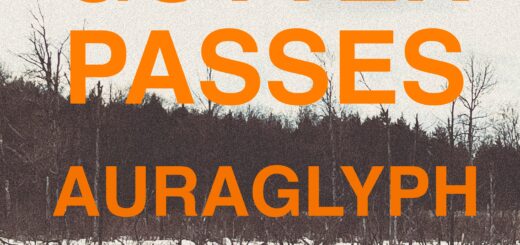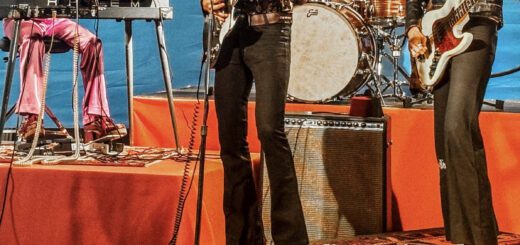Review: Captain Beefheart & Spielgusher Rarities
Two records once thought lost—Bat Chain Puller by Captain Beefheart and the Magic Band and Spielgusher’s self-titled collection of poetry-rock—are now at long last available. The former was recorded but never officially released, held in legal limbo for 35 years, and the latter was planned for release but not officially realized until now.
Bat Chain Puller was originally recorded in 1975. After spending the previous three years trying to sellout, Beefheart (aka Don Van Vliet) had succeeded in little more than alienating the handful of people who thought he was genius. Facing money issues (in no small part due to Van Vliet’s tendency to sign any contract put before him), his high-school-chum-cum-musical-rival Frank Zappa took him on tour as his band’s lead vocalist. While that tour ended with Zappa and VanVliet not speaking to each other (again), Van Vilet formed a new Magic Band with the help of drummer and long-suffering musical director John French. They intended to record tunes truer to the Beefheart aesthetic under the nominal supervision of Zappa’s manager Herb Cohen. Sadly, due to legal issues from Zappa’s split with Cohen (and with Cohen allegedly funding the sessions with money embezzled from Zappa), the album languished for years. The tunes, however, could not be contained by writ of law. Not only did an early rough mix of the album make its way onto the bootleg circuit, Beefheart and his band either rerecorded or used just about everything on the record as the basis for his final three albums, Shiny Beat (Bat Chain Puller), Doc At the Radar Station and Ice Cream for Crow.
Now, after years of waiting and wondering if the original recordings would ever be released, the Zappa Family Trust has made them officially available, quashing any number of bootlegs that have floated around for years. Of course, you can only get the album through the Zappa website, and no copies being sent out for review. (Yours truly paid his own personal cash money for his copy). So not quite as wide of a release as it could be. Which is damn shame. Even though most Beefheart fans are probably familiar with these songs, Bat Chain Puller still makes for a relevant and fascinating listen.
While darker and grimier then the versions that ended up on the generally upbeat Shiny Beast, here the Magic Band are decidedly less frantic than their late ’60s and early ’70s incarnations. The tunes are plenty squirrely—complicated and eccentric poly-rhythms battering about guitar twists, Beefheart still spouting abstract poetry with his ageless, desert burned Howlin’ Wolf howl—but this line-up is more relaxed, the delivery more confident, less self-consciously weird. From the infamous windshield wiper-inspired beat that starts off the title track to the more traditional and affecting “Harry Irene” (top-notch accordion solo) to the twisted and funny “Human Totem Pole,” the record hits height after height, making it impossible not to daydream about the alternate path Beefheart’s career might have taken. Certainly it would have denied us three classic albums. And even though I generally prefer the versions here to the ones that eventually came out (save “Owed T’Alex,” which is still best heard on Shiny Beast), I’m hardly going to stop listening to them. Who knows if this would have been the record to finally shine a brighter light onto Van Vliet’s music? It is a great piece of work to be sure, but probably not the kingmaker. Bat Chain Puller marks the start of the second half of the Beefheart-era; from here on out, the band members would be people (save French) who grew up listening to Safe as Milk and Trout Mask Replica. Perhaps this accounts for its less manic weirdness. Or maybe it is just Van Vliet finding some degree of comfort in his role. His voice is throatier, and you can’t help but wonder if the spoken piece that ends the record, “Apes-Ma” (about an aging ape in a cage), is autobiographical.
The packaging is excellent, with good liner notes from guitarist Denny Walley and drummer John French. Plus, there are a few bonus tracks, including an 8-minute blues duet between Walley and Van Vliet entitled “Hobo-ism.” Positively outstanding.
 Spielgusher is a band featuring writer Richard Meltzer and Mike Watt, the bassist of Minutemen, fIREHOSE, and, of course, the Stooges. Well, Spielgusher isn’t exactly a band, since the music was recorded in Japan in 2008 and Meltzer’s spoken bits (spiels) were recorded in Portland in 2004. The idea of setting Meltzer’s poems to music was originally intended to be a project of the Minutemen, who were long-time acolytes of Meltzer’s rock writing and his lyrics for Blue Öyster Cult. With the death of D.Boon, the guitarist and vocalist of the Minutemen, the project was scrapped. But Watt and Meltzer remained in touch, and now we have Spielgusher. Structured like Meltzer’s strongest works, Gulcher and the novel (The Night) Alone, and the Minutemen’s short punky spurts, the record lines up a series of 63 brief spoken pieces set to Watt on bass, Hirotaka “Shimmy” Shimizu on guitar, and Yuko Araki on drums. And despite Watt’s presence, your enjoyment of this record hinges on how dialed in you are to Meltzer’s bleak and caustic musings on sex, death, aging, and other dark stuff. Quick hint: He’s not much of a sentimentalist, though a sort of nostalgia does creep in when he’s reminiscing about trying to fuck his sister.
Spielgusher is a band featuring writer Richard Meltzer and Mike Watt, the bassist of Minutemen, fIREHOSE, and, of course, the Stooges. Well, Spielgusher isn’t exactly a band, since the music was recorded in Japan in 2008 and Meltzer’s spoken bits (spiels) were recorded in Portland in 2004. The idea of setting Meltzer’s poems to music was originally intended to be a project of the Minutemen, who were long-time acolytes of Meltzer’s rock writing and his lyrics for Blue Öyster Cult. With the death of D.Boon, the guitarist and vocalist of the Minutemen, the project was scrapped. But Watt and Meltzer remained in touch, and now we have Spielgusher. Structured like Meltzer’s strongest works, Gulcher and the novel (The Night) Alone, and the Minutemen’s short punky spurts, the record lines up a series of 63 brief spoken pieces set to Watt on bass, Hirotaka “Shimmy” Shimizu on guitar, and Yuko Araki on drums. And despite Watt’s presence, your enjoyment of this record hinges on how dialed in you are to Meltzer’s bleak and caustic musings on sex, death, aging, and other dark stuff. Quick hint: He’s not much of a sentimentalist, though a sort of nostalgia does creep in when he’s reminiscing about trying to fuck his sister.
Initially, I was little underwhelmed by the light touch of the music, especially compared to Watt’s more muscular improv and poetry project, Unknown Instructors. But the more I listened, the more I found myself finding the odd rhythms and weirdly Martin Denny-esque soundscapes, not exactly soothing, but certainly fitting with Meltzer’s goof ball delivery—even when he’s talking about “Fuck Awareness Week”, dead people (FYI Nancy Sinatra is not dead yet), his friends, or how parenting is child abuse. For all of Meltzer’s bluster, it is somehow affecting, almost touching, in ways that it is hard for me to put a finger on.
For your average rube this going to another weird record that they hear once, twice, maybe only in passing, or perhaps they don’t ever hear it all. I mean, most people don’t want to curl up in front of the fire to this record, which is dumb because they should. That’s like the best thing a person can do!
—Chris Besinger (STNNNG)










